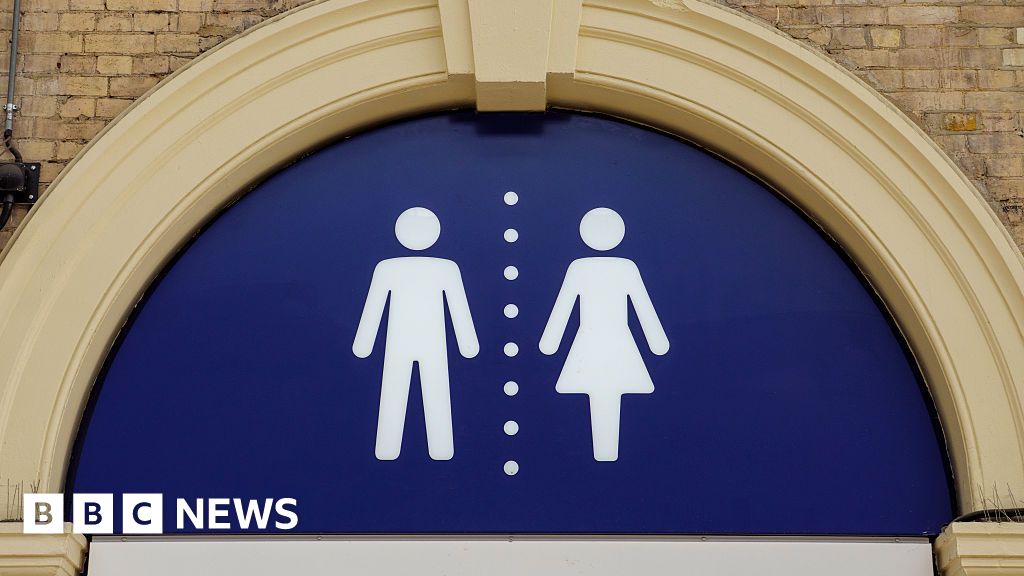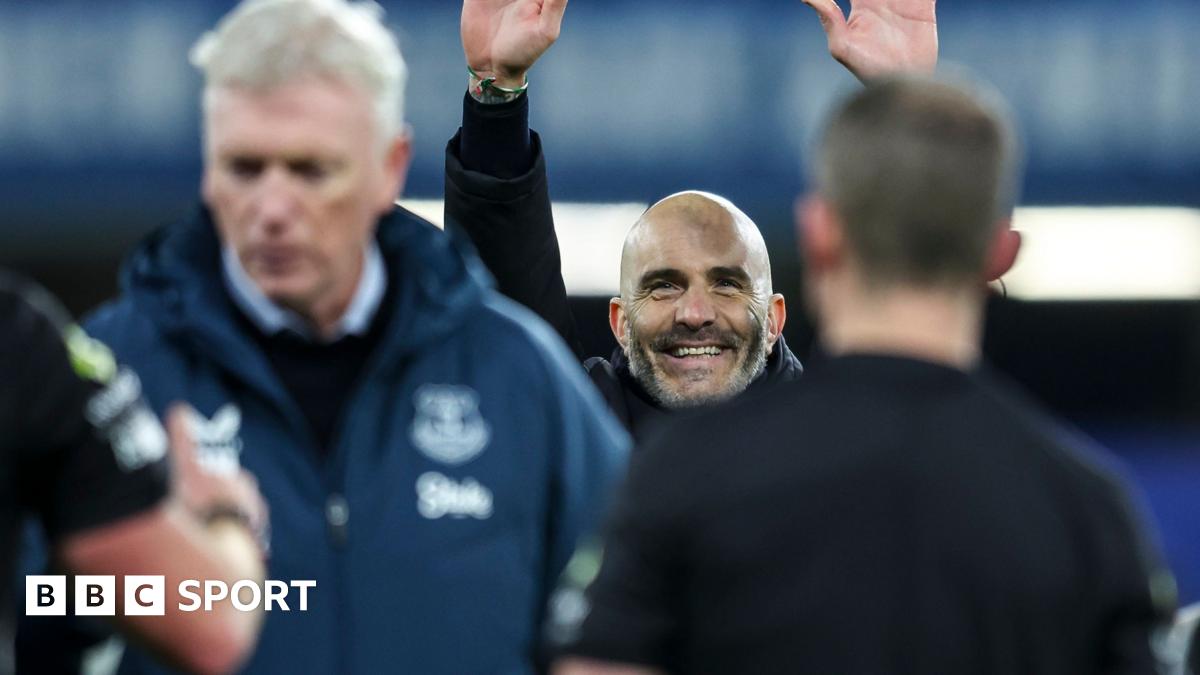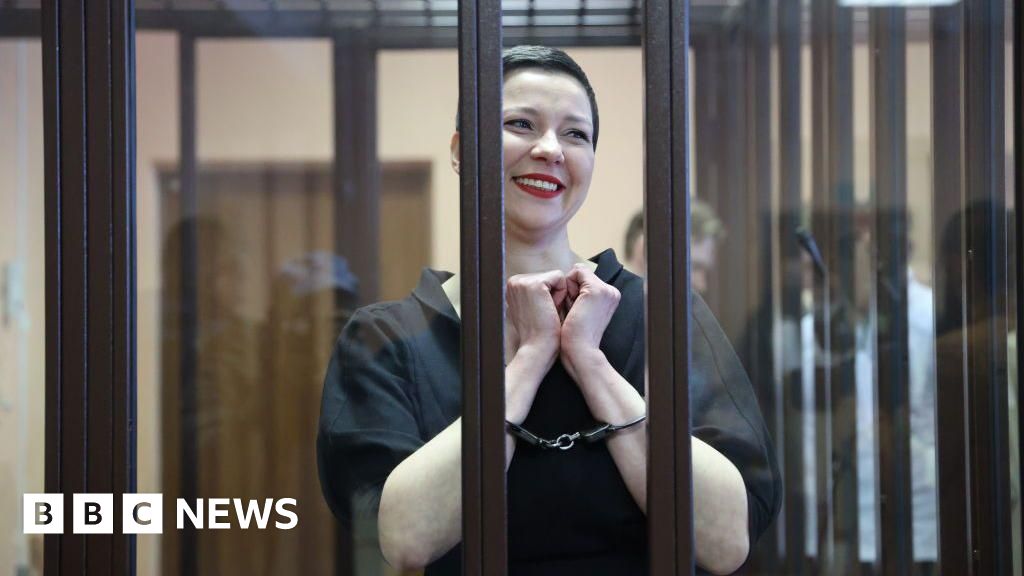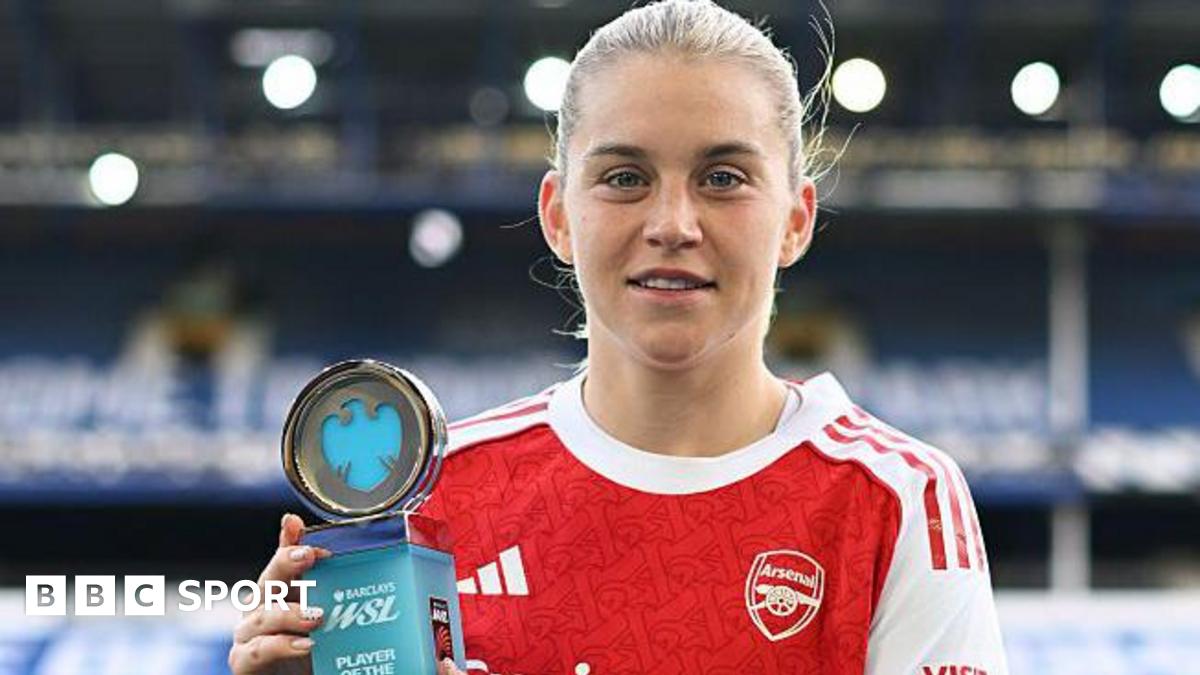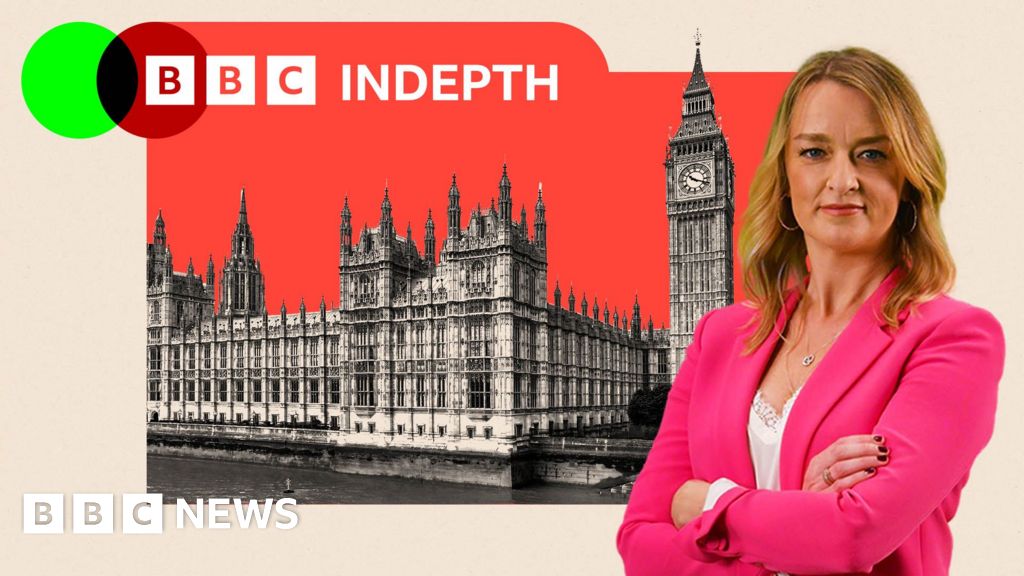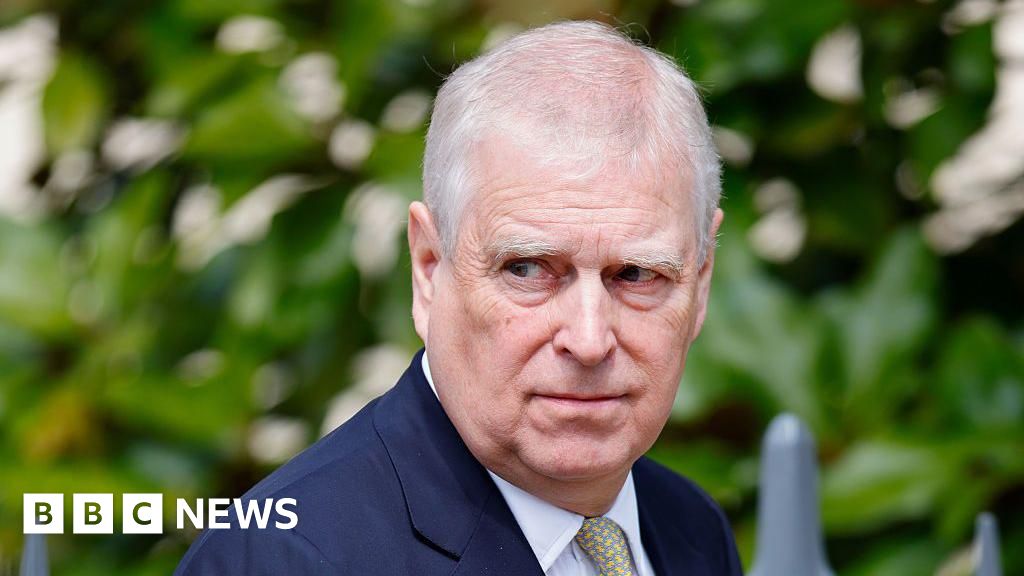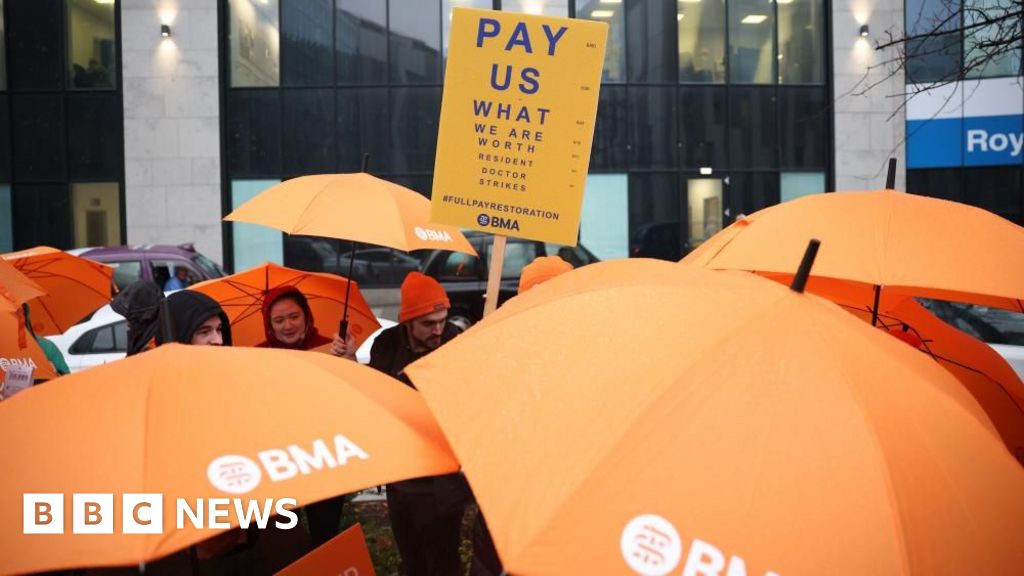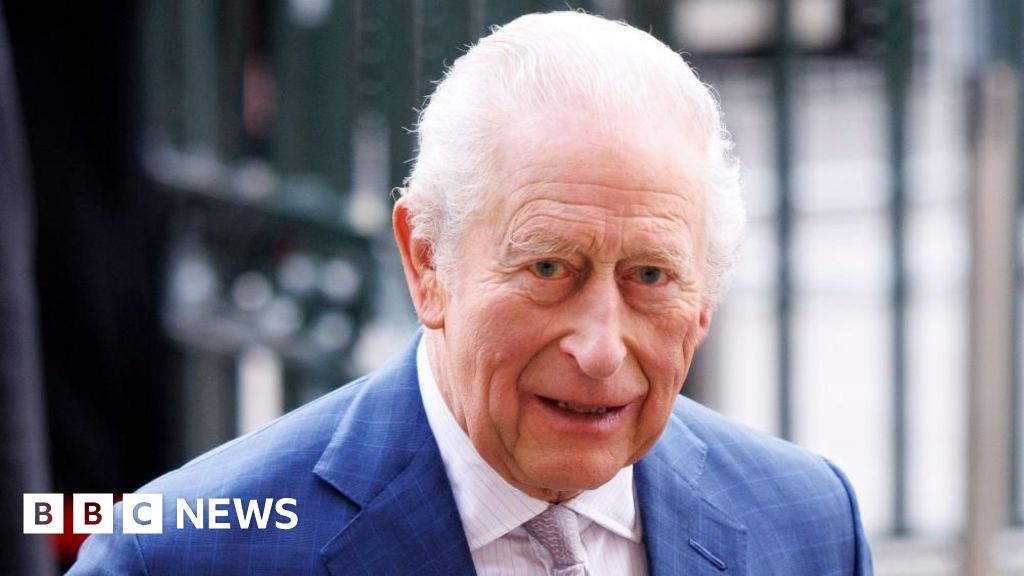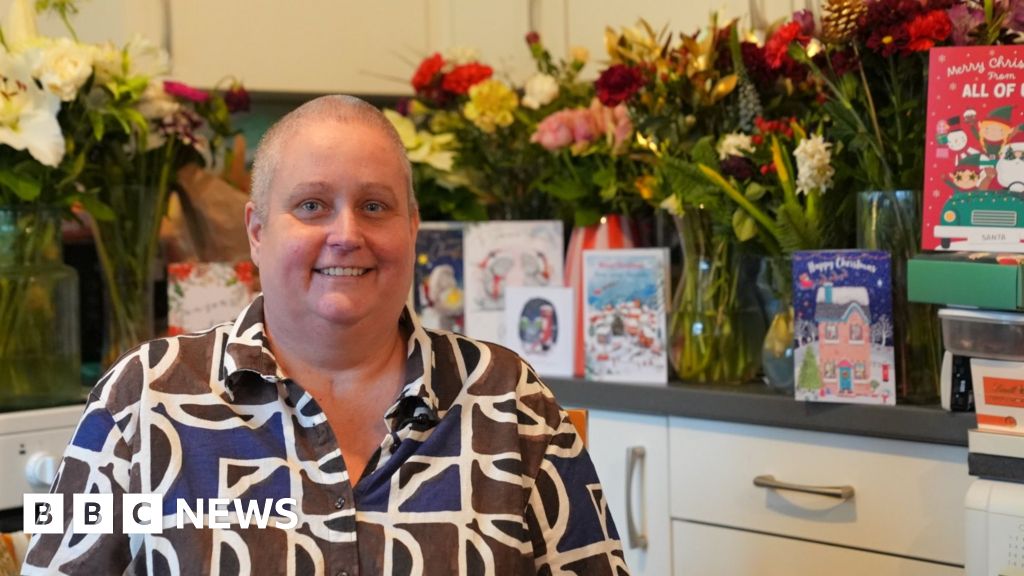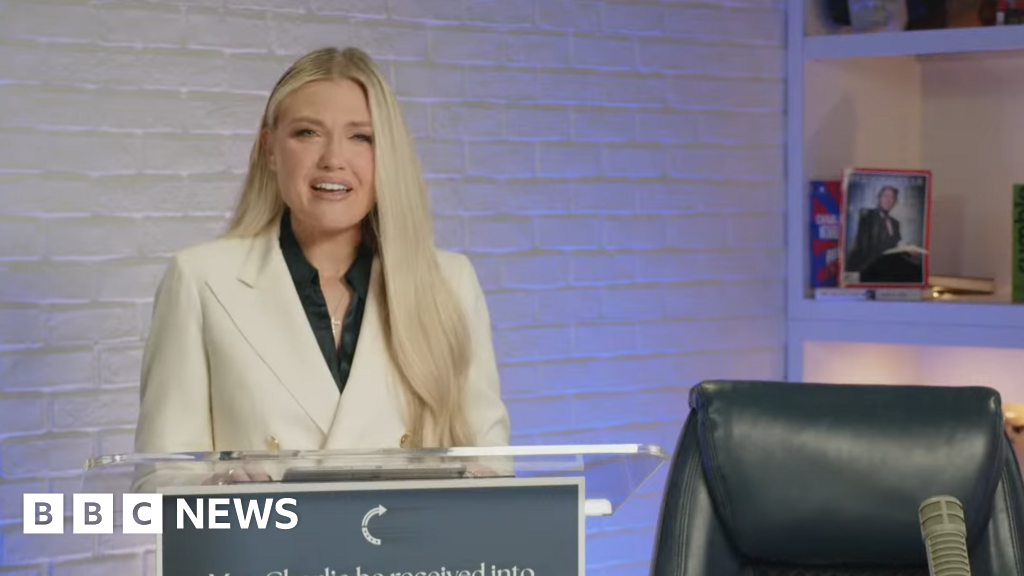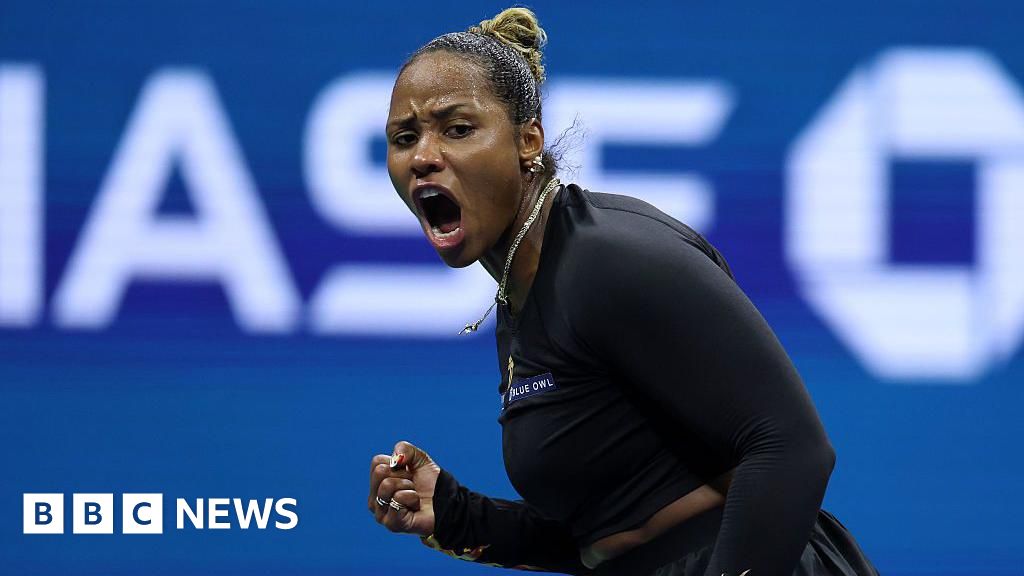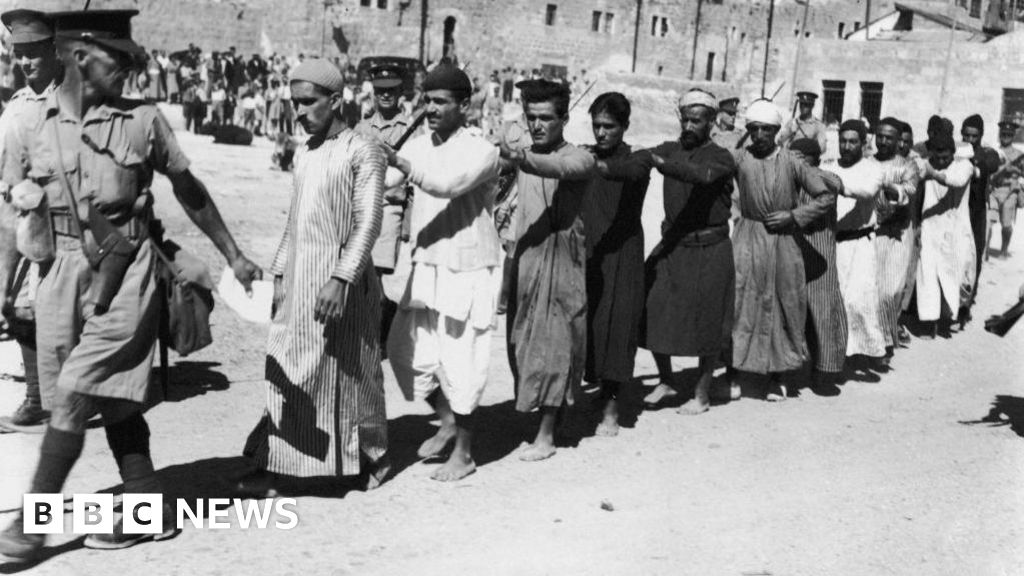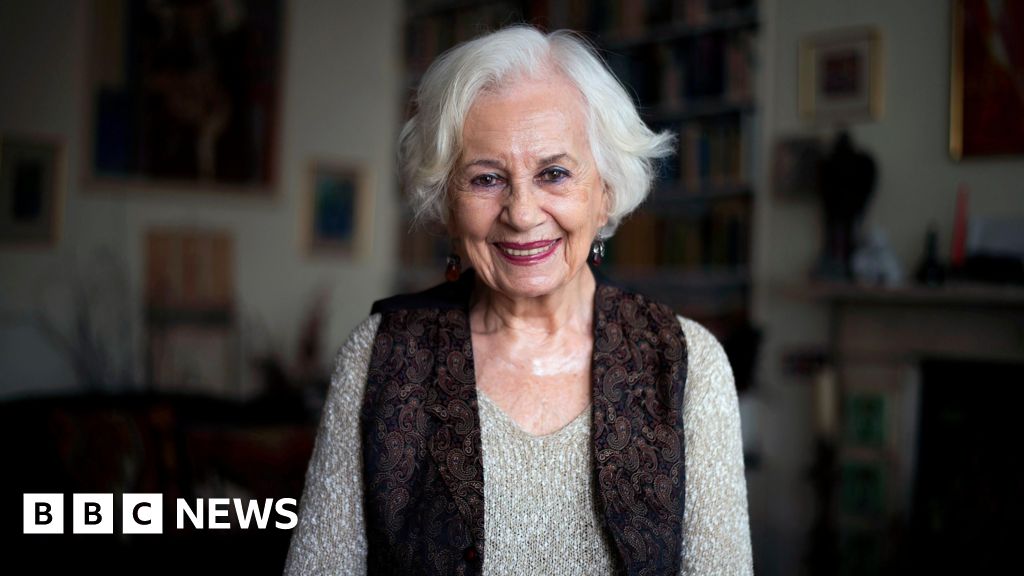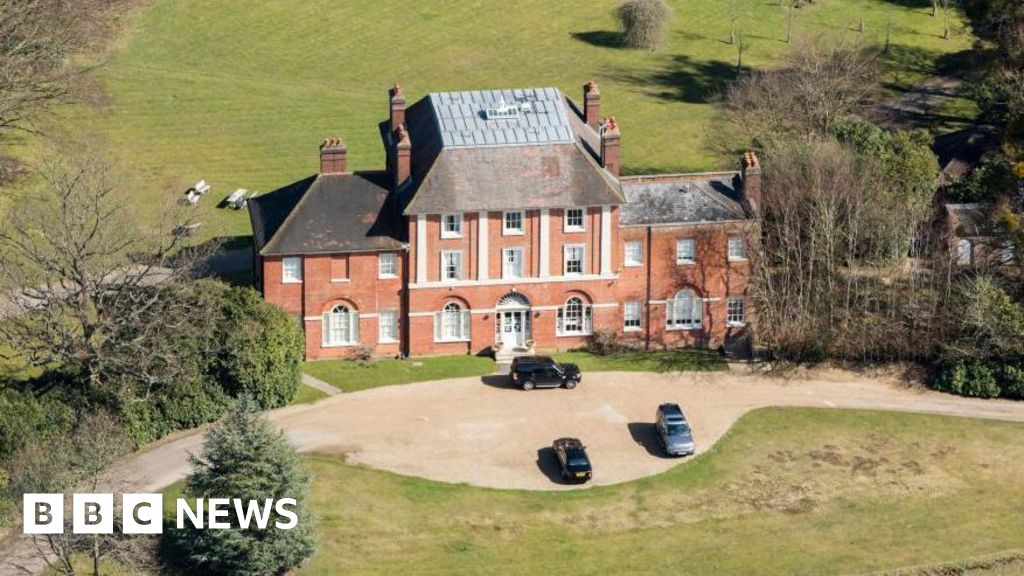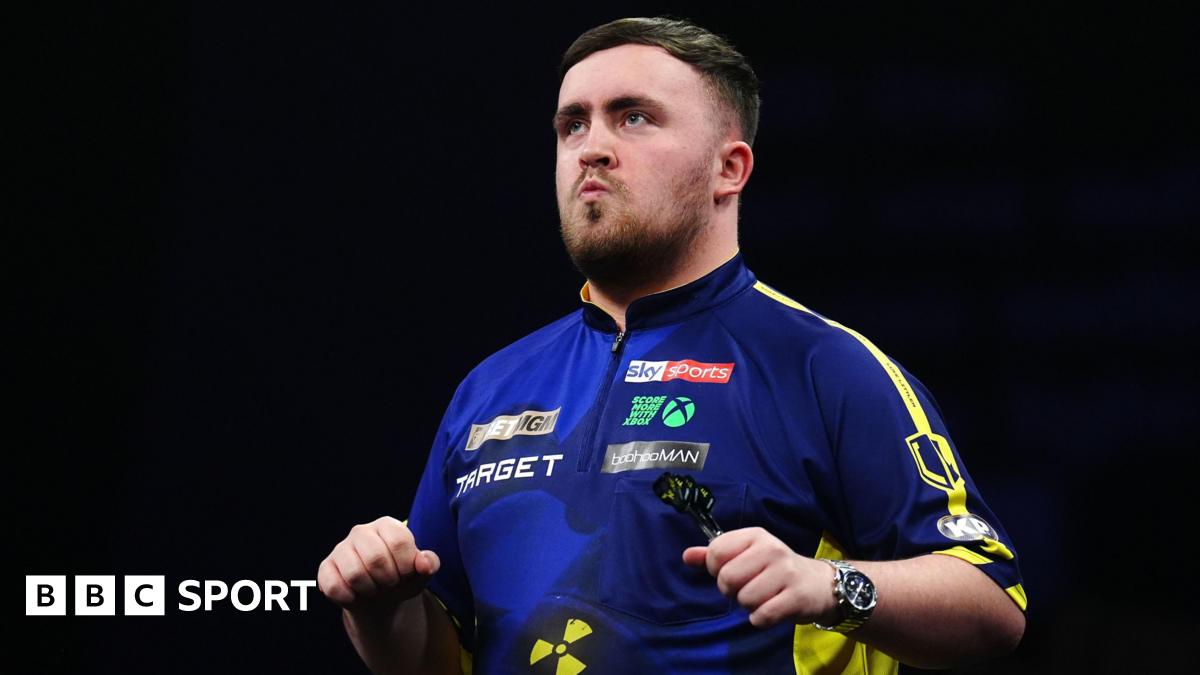Chris Masonpolitical editor and Becky Mortonpolitical reporter

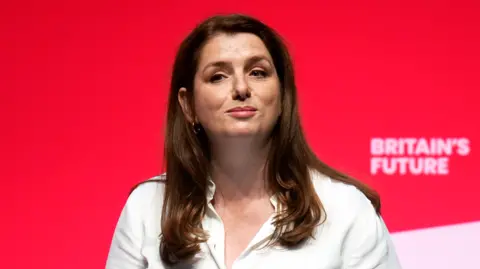 Getty Images
Getty Images
Alison McGovern has dropped out of the contest to become Labour's next deputy leader, giving her backing to Education Secretary Bridget Phillipson.
The housing minister said it was clear she would not have the required backing of 80 MPs by the 17:00 deadline on Thursday.
Phillipson has emerged as a frontrunner and her team believe they will clear the threshold a day early, after gathering 44 nominations by the end of Tuesday.
Her closest rivals so far are former Commons leader Lucy Powell, with 35 declared backers, and Bell Ribeiro-Addy, who is on the left of the party, with eight.
They are followed by Foreign Affairs Committee chairwoman Dame Emily Thornberry with seven, Liverpool Wavertree MP Paula Barker with three. McGovern had trailed the pack, with just two nominations.
In a statement, McGovern said she was pulling out now to allow her supporters to switch their support before Thursday's deadline.
She added she would be "nominating my friend and colleague Bridget Phillipson as the candidate best-placed to unite our party".
About 300 of the 399 Labour MPs yet to declare publicly their favoured candidate, there is still time for other campaigns to gain momentum.
Sir Keir Starmer's cabinet - which includes 24 MPs - have been told not to nominate any candidate, though junior ministers are able to do so.
But some Labour figures wonder if as many as 80 more could choose not to officially back anyone, shrivelling the electorate.
It looks quite likely Phillipson will stack up a very big number of supporters, further squeezing the remaining votes to be fought over.
This leaves open the possibility that she is the only candidate to get enough MP backers.
Some rival camps think this is exactly the outcome Downing Street would favour, allowing the contest to be wrapped up quickly.
As the only member of the cabinet to announce her intention to stand, Phillipson is also expected to be more supportive of the government than some of the other candidates.
This may help her secure lots of MP nominations, but may be a disadvantage if the contest reaches the stage where Labour Party members get a vote and there is a rival candidate not in government.
There is talk among Phillipson's opponents of the need for votes to consolidate around a viable rival, rather than splinter in five different directions.
Supporters of Powell, who was sacked from her cabinet role in the recent reshuffle, sound cautiously optimistic they can get to 80 nominations.
Meanwhile, other candidates are seeking to woo their fellow MPs, with a virtual hustings taking place at 20:00.
The six hopefuls will be at party headquarters in south London, with Labour MPs able to join remotely to ask questions.

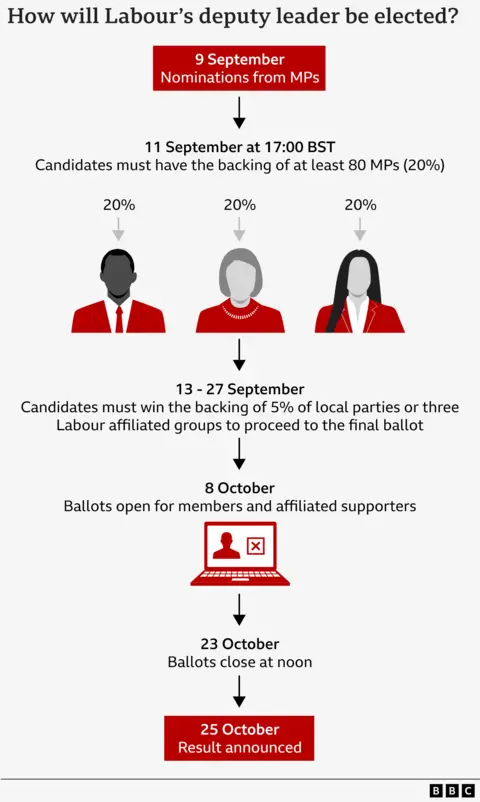
Many senior Labour figures have called for the new deputy leader to be a women from northern England, to counter what they see as the London-centric and male-dominated party leadership.
Sir Keir and his new Deputy Prime Minister David Lammy - who replaced Angela Rayner in the role after her resignation last week - both represent London constituencies.
Phillipson, who is the MP for Houghton and Sunderland, has sought to highlight her credentials as a "proud working-class woman from the North East" who would fight "the dangers Reform poses our country".
Her closest rival, Powell, has pledged to bring together "all parts of the party" and unite "our broad voter coalition".
Announcing she was standing on Tuesday, the MP for Manchester Central said living in her home city "has rooted my politics in an understanding of people's everyday hopes and fears".
Dame Emily – a London MP – has hit back at the idea the winning candidate should be from outside the capital, suggesting it should be about "what you can do for the party".
A member of Sir Keir's frontbench team when the party was in opposition, Dame Emily was a surprise omission from the PM's cabinet when Labour won power.
Signalling her willingness to challenge the leadership, Dame Emily has pledged to "be a voice for the membership, unions, PLP [Parliamentary Labour Party], and our constituents – not just nod along".
The tight timetable for the contest has been criticised by some in the party, including Ribeiro-Addy, who has suggested it could prevent left-wing candidates from progressing in the contest.
Although the MP for Clapham and Brixton Hill has acknowledged she is unlikely to win, Ribeiro-Addy said she wanted to use the platform to encourage a debate among Labour members about "what's gone wrong" in the party's first year in power.
She cited the government's position on the war in Gaza and attempts to cut benefits as examples.
Rival candidate Barker has also been critical of the government's response to the conflict and launching her campaign she called for the party to "go back to our true Labour values", including to "prioritise people over profit".
If they secure enough support from their parliamentary colleagues, candidates will then need the backing of either 5% of local parties, or three Labour-affiliated groups, including two unions.
Those who clear the bar face a vote by party members, with the winner announced on 25 October.
Whoever wins the contest, Lammy will remain as deputy prime minister - a role which is appointed by the PM, rather than decided by Labour Party members.
The contest was triggered when Rayner resigned as deputy leader, deputy PM and housing secretary, after admitting she failed to pay enough tax when buying a £800,000 flat in Hove.



 3 months ago
74
3 months ago
74


